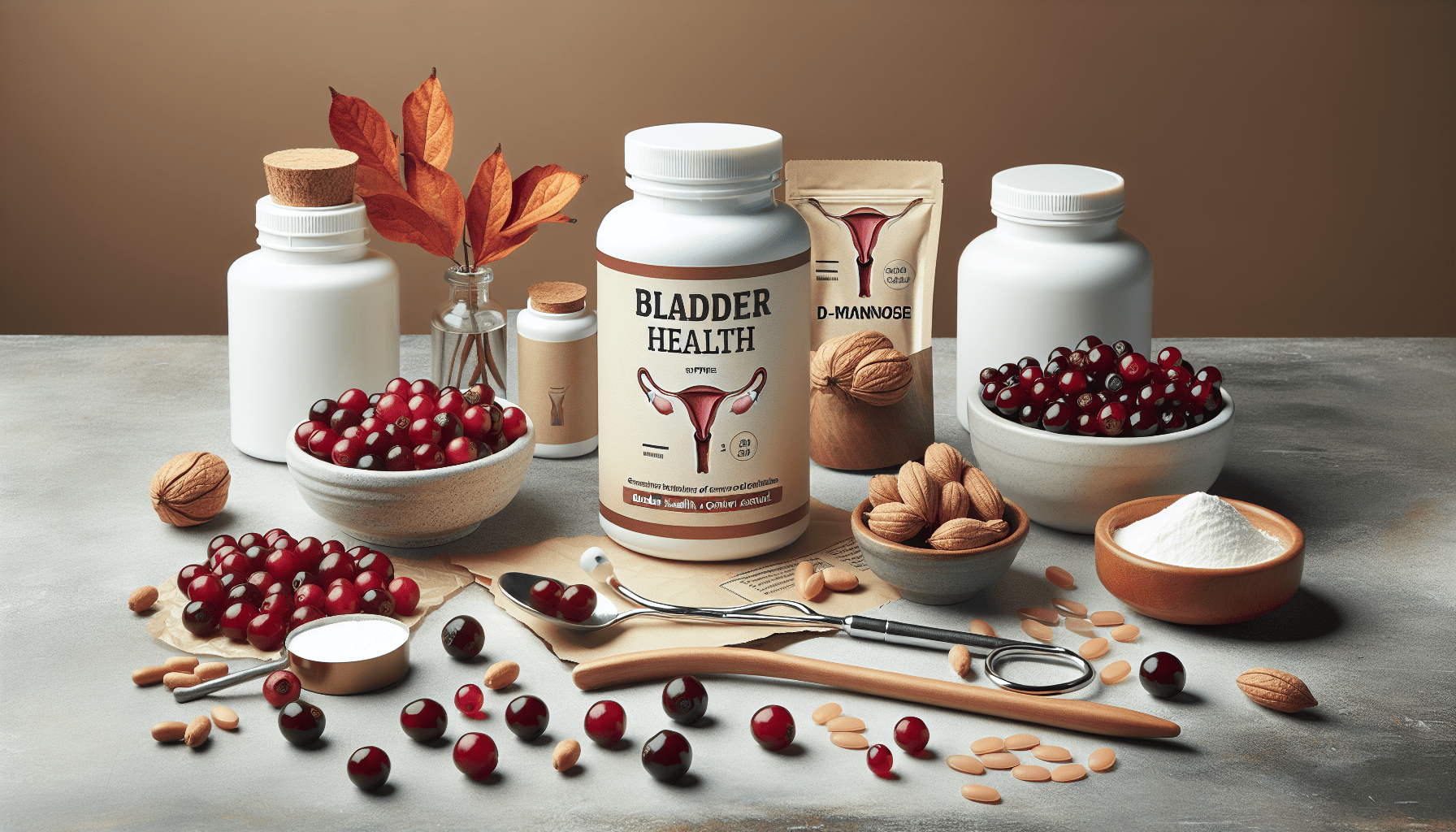Have you ever wondered how to restore normal bladder control as you get older? It can be a troubling issue, but the good news is that there are several effective supplements available that might help you manage incontinence and improve bladder control.
Understanding Bladder Control Issues
Table of Contents
Bladder control issues can be both frustrating and embarrassing. They often affect older adults, but it’s essential to understand that you’re not alone, and it’s not something you simply have to endure. These issues occur for a variety of reasons—weakening bladder muscles, hormonal changes, or even certain medical conditions can contribute to the problem. By understanding what causes these issues, you can better target them with the appropriate supplements.
Why Bladder Control Weakens with Age
As we age, our bodies undergo many changes. You might find that your bladder doesn’t hold as much as it used to or that you need to go more frequently. The muscles around your bladder can weaken, and perhaps you’re not as physically active as you used to be, which can also contribute to the problem. However, understanding these factors can help you take the right steps to regain control.
The Role of the Pelvic Floor
Your pelvic floor muscles play a crucial role in bladder control. They support your bladder and help it maintain its functions. With aging, these muscles can weaken, leading to issues such as leakage or an urgent need to urinate. Strengthening these muscles through exercises and supplements can make a significant difference.
Best Supplements for Bladder Control
There’s a wide variety of supplements specifically aimed at improving bladder control. Let’s explore some of the best ones that could help you regain your confidence and reduce incontinence.
Pumpkin Seed Extract
Pumpkin seed extract is one of the most recognized supplements for bladder health. It is rich in fatty acids and phytoestrogens that can help strengthen the bladder muscles and support urinary function. Research suggests it can be particularly effective for both men and women.
Saw Palmetto
Saw Palmetto is a plant extract that has been linked to improved urinary symptoms. It helps maintain a healthy balance of hormones, which can significantly impact bladder function. For men, it is particularly beneficial because it supports prostate health, thereby improving bladder control.
Magnesium
Magnesium is crucial for muscle function throughout your body, including your bladder. A deficiency can contribute to muscle spasms, which might be one reason for the frequent urge to urinate. Taking a magnesium supplement can help relax the bladder muscles, reducing urgency and frequency.
Vitamin D
This important vitamin supports overall muscle function and can play a role in maintaining bladder control. Low levels of Vitamin D have been associated with a higher risk of pelvic floor disorders. Ensuring you get enough Vitamin D can help you maintain stronger muscles, including those around your bladder.
Horsetail
Horsetail is an ancient herb known for its diuretic properties, but it also helps strengthen and tone the urinary bladder. It can help reduce urinary frequency and improve the overall health of the urinary tract.
Corn Silk
Corn silk is often used as a natural remedy for urinary tract infections, but it also has properties that can support bladder control. It can help soothe the urinary tract, reduce irritation, and improve the overall health of the bladder.
Cranberry Extract
Cranberry is widely known for its benefits in preventing urinary tract infections. It contains compounds that can help prevent bacteria from adhering to the walls of the urinary tract, thereby reducing the risk of infections that can aggravate bladder control issues.
D-Mannose
D-Mannose is a type of sugar that can help prevent urinary tract infections, a common issue that can exacerbate bladder problems. It works similarly to cranberry by preventing bacteria from sticking to the urinary tract, allowing them to be flushed out of the body.

How to Choose the Right Supplement for You
With so many options available, it can be challenging to decide which supplement is best for you. It’s essential to consider your specific symptoms, any underlying health conditions, and how each supplement works.
Consult with a Healthcare Provider
Before starting any supplement, it’s wise to discuss your options with a healthcare provider. They can help determine the best course of action based on your medical history and current health status. This step is crucial to avoid any potential interactions with other medications you might be taking.
Watch for Allergies and Sensitivities
Some people might have allergies or sensitivities to certain herbs or supplements. Make sure to read labels carefully and start with a low dose to see how your body reacts. If you experience any adverse effects, discontinue use and consult with a healthcare provider.
Consider the Form and Dosage
Supplements come in various forms, including capsules, tablets, tinctures, and powders. Choose a form that fits your lifestyle and is easy for you to take consistently. Also, follow the recommended dosage guidelines and be aware that it might take some time to notice the full benefits.
Combine with Lifestyle Changes
Supplements can be incredibly beneficial, but they often work best when combined with lifestyle changes. Incorporate exercises to strengthen your pelvic floor, maintain a healthy weight, and stay hydrated. Avoid excessive caffeine and alcohol, as these can irritate the bladder.
Additional Tips for Managing Bladder Control
Alongside taking supplements, there are several other strategies that can help you manage bladder control issues more effectively.
Kegel Exercises
Kegel exercises are one of the most effective ways to strengthen your pelvic floor muscles. By regularly doing these exercises, you can improve bladder control. Try to make them a part of your daily routine for the best results.
Stay Hydrated
It might seem counterintuitive, but staying hydrated is essential. Dehydration can lead to concentrated urine, which can irritate the bladder. Make sure to drink plenty of water throughout the day to keep your urinary system healthy.
Avoid Bladder Irritants
Certain foods and drinks can irritate your bladder and contribute to incontinence. Try to avoid or limit caffeine, alcohol, spicy foods, and artificial sweeteners. Keeping a food diary can help you identify specific triggers that might be worsening your symptoms.
Schedule Bathroom Visits
Creating a bathroom schedule can help train your bladder and reduce the frequency of urgent needs. Gradually increase the time between bathroom visits to help extend your bladder capacity.
Manage Weight
Excess weight can put additional pressure on your bladder and pelvic floor muscles, worsening incontinence issues. Maintaining a healthy weight through diet and exercise can relieve some of this pressure and help improve bladder control.
Wear Protective Pads
In situations where you might not always have complete control, wearing protective pads can help you feel more confident and reduce the anxiety about potential leaks. There are many discreet and comfortable options available that can fit your lifestyle seamlessly.

The Emotional Impact of Bladder Control Issues
It’s also essential to address the emotional aspect of dealing with bladder control issues. It can take a toll on your self-esteem and mental health, but remember that seeking help is a positive step.
Don’t Be Embarrassed to Seek Help
Many people feel embarrassed to talk about their bladder control problems, but it’s a common issue, especially among older adults. Seeking help from a healthcare provider or discussing it with a loved one can provide you with the support you need to manage the situation more effectively.
Join Support Groups
Joining a support group can be a great way to connect with others facing similar challenges. Sharing experiences and tips can be incredibly comforting and can provide you with new strategies to manage your symptoms.
The Role of Nutrition
A balanced diet rich in essential nutrients can play a significant role in improving bladder health. Focus on a mix of vitamins and minerals that support muscle function and overall urinary health.
Foods to Include
Include fiber-rich foods like fruits, vegetables, and whole grains to avoid constipation, which can pressure the bladder. Incorporate foods high in magnesium, like leafy greens and nuts, to support muscle function. Additionally, foods rich in antioxidants, such as berries, can support overall bladder health.
Foods to Avoid
Limit salty foods, which can cause fluid retention and put additional strain on your bladder. Try to cut back on sugar and artificial sweeteners, as they can irritate your bladder and exacerbate symptoms.
Practical Solutions for Daily Life
Life doesn’t stop because of bladder control issues, and there are many practical solutions to help you continue your daily activities without interruption.
Plan Ahead
If you’re going out, plan your day to ensure you have access to restrooms when needed. Consider taking a portable urinal or using absorbent products for added peace of mind.
Use Technology
Many apps are available that can help you track your fluid intake, bathroom visits, and identify patterns or triggers that affect your bladder control. Using technology can make managing your condition easier and more organized.
Dress Appropriately
Wearing clothes that are easy to remove can be a simple yet effective way to reduce anxiety during urgent situations. Opt for comfortable, loose-fitting clothing that provides ease of access when you need to use the restroom quickly.
Summary Table of Supplements
Here’s a quick reference table to summarize the supplements discussed:
| Supplement | Main Benefit | Additional Notes |
|---|---|---|
| Pumpkin Seed Extract | Strengthens bladder muscles | Effective for both men and women |
| Saw Palmetto | Supports hormonal balance | Especially beneficial for men’s prostate health |
| Magnesium | Relaxes bladder muscles | Crucial for overall muscle function |
| Vitamin D | Supports muscle function | Important for pelvic floor health |
| Horsetail | Strengthens and tones the bladder | Known for its diuretic properties |
| Corn Silk | Soothes the urinary tract | Reduces irritation and supports bladder health |
| Cranberry Extract | Prevents urinary tract infections | Helps bacteria flush out of the body |
| D-Mannose | Prevents urinary tract infections | Works similarly to cranberry in preventing bacterial adhesion |
By combining the benefits of these supplements with lifestyle changes and practical tips, you can significantly improve your bladder control and overall quality of life. Remember, it’s never too late to take steps towards better health and regain your confidence. Keep a positive mindset, be consistent with your efforts, and consult with healthcare providers to find the best solutions tailored to your needs.





